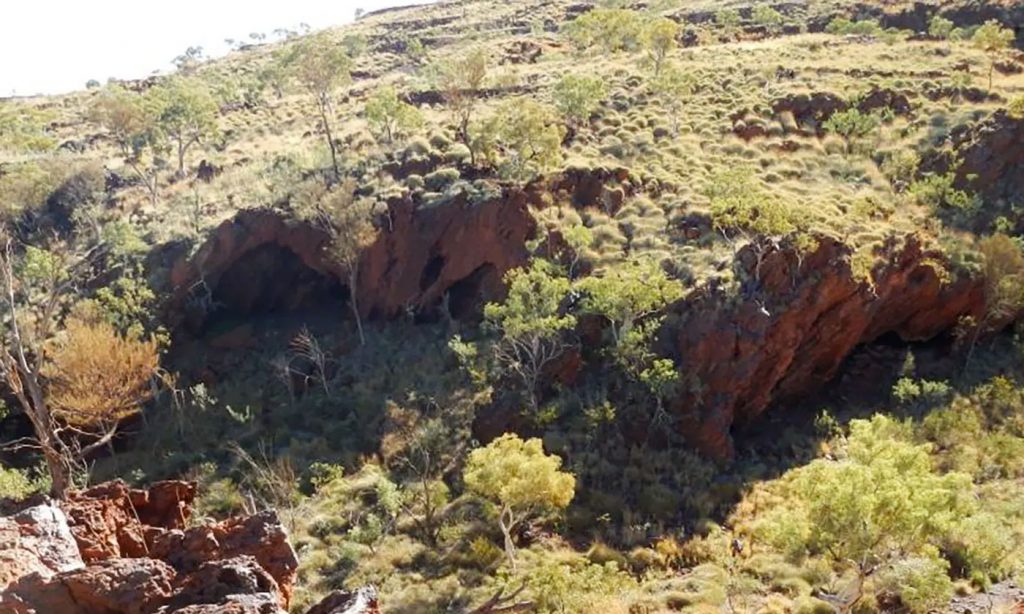
Western Australia will overturn its 2021 Aboriginal cultural heritage protection laws, introduced after the destruction of the ancient Juukan Gorge rock shelters, in response to opposition from landowners, the state’s premier said on Tuesday.
The Indigenous group whose shelters were legally destroyed by Rio Tinto in 2020 said it was outraged by the decision to scrap the protection. The rock shelters had shown human habitation stretching back 46,000 years.
State Premier Roger Cook said the 2021 legislation would be dropped after widespread opposition from farmers and pastoralists. Instead, a 1972 law would be restored and amended to ensure the protection of important sites.
“The Juukan Gorge tragedy was a global embarrassment but our response was wrong, we took it too far, unintentionally causing stress, confusion and division in our community,” Cook said.
The amendments to the 1972 law were “simple and effective” and would prevent another Juukan Gorge from happening, he said.
Landowners have been up in arms over what they said was onerous and costly regulation set down in the 2021 law.
But the Puutu Kunti Kurrama and Pinikura Aboriginal Corporation (PKKP) condemned the decision, saying it had lost faith in the state government to protect Aboriginal cultural heritage and the return of sections of the old 1972 law was a disgrace.
“The PKKP are outraged that they, and Traditional Owners in Western Australia are back to square one, and the Cook government is reverting to laws that allowed the destruction of Juukan Gorge,” the group said in a statement,
The change, which comes after the legislation had been in place for just five weeks, may temper rising angst in the state over Indigenous rights.
Support has been falling nationally for Federal government-backed plans to establish an Indigenous advisory body in parliament that Australians will vote on in a referendum later this year.
The destruction of Western Australia’s Juukan Gorge rock shelters for an iron ore mine caused deep distress to Indigenous groups and a global outcry that eventually cost Rio’s chief executive, chair and senior executives their jobs.
It sparked a national inquiry, forced miners to overhaul their practices and brought stricter governance requirements from investors.
The PKKP said at the weekend that the 2021 law, while not perfect, was an improvement on the 1972 regulations.
Rio Tinto sent a letter to Aboriginal groups, including the PKKP, assuring them of its commitment to protecting cultural heritage, according to a copy seen by Reuters.
The miner said in a statement it would continue to engage with the state government to advocate for increased protection of Aboriginal cultural heritage.
The CEO of WAfarmers Trevor Whittington told Reuters the 2021 legislation was not fit for purpose and his group was waiting to see what the amendments entailed.
“Every new farming activity that we undertook would require a new heritage survey,” he said of the 2021 legislation.
“It was unworkable.”
Cook, however, dismissed those assertions saying the only obligations for farmers or other landowners to undertake a heritage survey under the 2021 legislation was if they planned activity that would impact a known cultural heritage site.
One of the key grievances that Aboriginal groups had with the new act was that they had no right of veto and the ultimate decision maker over heritage destruction was a government minister. In the 1972 legislation, which governed development until June, miners or landowners could appeal a minister’s decision but Indigenous groups could not.
“We will make sure they have a right of appeal in the event a decision is made,” Cook said.
(By Melanie Burton; Editing by Kim Coghill and Robert Birsel)
Comments